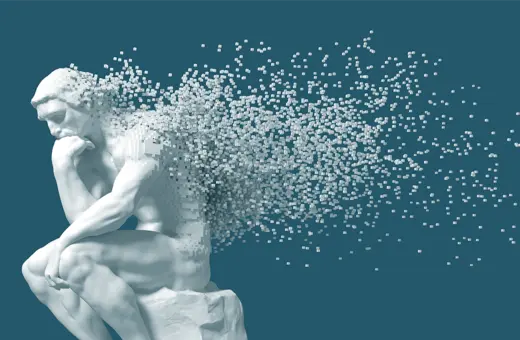True love. Everybody wants it and nobody really knows what it is. Ask around, and you will get a lot of different answers. However, put those answers together, mix in selected literary classics, add a dash of pop culture and a sprinkle of internet memes, and you get roughly the following ideal: true love is loving and being loved forever by someone who cherishes you more than anything else.
We can break down this ideal to a few central tenets.
First, there is the surprisingly ancient idea that true love is about ‘finding the One’, the person we are destined to be with, our other half. We wander on the earth looking for the one person who can complete us. In this fatalistic way of approaching true love, true love is rare, insofar as it is bound with luck and uniqueness. This conception is usually appealing to younger idealistic people, although we might wonder if it’s going extinct in the era of polyamory.
True love, in this framework, is about loving a person notwithstanding their changes through time and loss of attractive qualities.
While uniqueness is typical of romantic love, a second feature, unconditionality, goes well beyond the marriage vows of “for better and for worse” and extends to all kinds of love. The allegedly purest love—maternal love—is the paradigm of unconditional love. But there are two different senses in which love can be unconditional.
The first sense we can call resiliency: love is expected to be resilient in the face of changes, especially negative changes in the beloved. True love—according to this ideal—does not look for upgrades, and rejects substitutions: “love is not love which alters when it alteration finds”, as Shakespeare puts it in one of his sonnets. Thus, we should keep loving our friends, even when we grow different. We should keep loving our ageing partners, rather than chase younger ones. We should keep loving our children, even if they turn out to be assholes, or mass murderers. True love, in this framework, is about loving a person notwithstanding their changes through time and loss of attractive qualities, whether that be beauty, youth, wealth, or even moral character.
Resiliency is often connected with the second sense in which love can be unconditional, which we can call selflessness: love is supposed to be about caring for the well-being of the beloved above and beyond one’s own. The epitome of this ideal is that of the ever-giving mother. But self-sacrifice is seen as a sign of true love in other domains as well.
A further component of the ideal of true love is reciprocity. This is especially the case in the context of chosen loves, like romantic and friendly love. It is also a more distinctively modern ideal; unrequited love used to be seen in a more favorable light, judging by the masterpieces that celebrated it. Now, it tends to be dismissed as stalking, or unhealthy obsession.
An ever-lasting blissful reciprocated unconditional selfless love is not what we should aspire to.
Finally, true love should involve eternal bliss. Fables ending with “happily ever after” retain their charm even as divorces are the norm, not the exception. If true love is unconditional, then why would it ever end? If it is reciprocated, and each lover puts the other above oneself, why would it not be happy? There might be initial struggles, temporary misunderstandings, missed connections. But true love defeats all obstacles, and keeps at bay loneliness. It annihilates sadness, assuages anger, renders jealousy superfluous, and is incompatible with envy.















Join the conversation